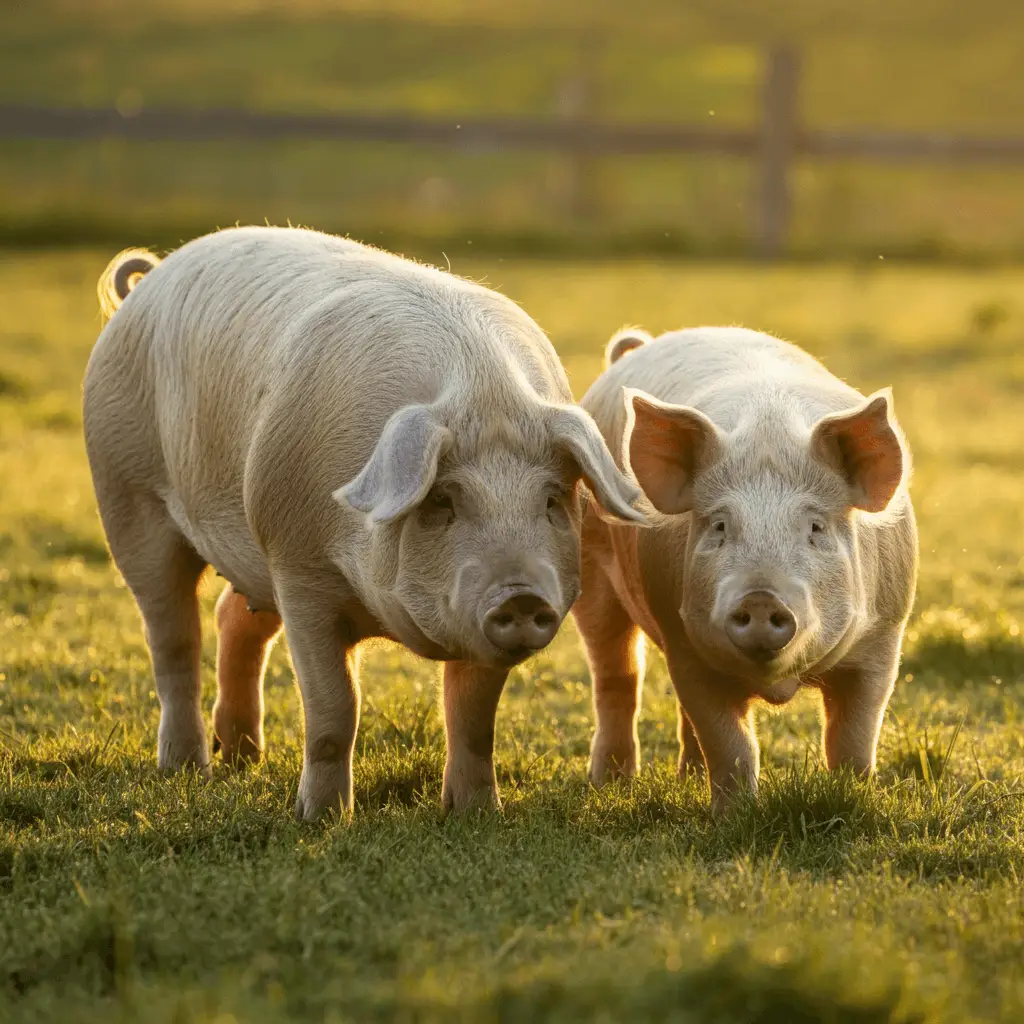Berkshire pigs are prized among homesteaders for their exceptional flavor, rich heritage, and adaptability to natural farming practices. This guide will explore everything you need to know about breeding Berkshire pigs, from their unique characteristics and special lifespan to ethical, natural rearing approaches. Whether you’re just beginning your homestead or considering adding Berkshire pigs to your fold, this post will provide practical tips and insights to ensure successful and sustainable practices.
Breeding Berkshire Pigs the Right Way
Selecting the Right Breeding Pairs
When breeding Berkshire pigs, choosing high-quality breeding pairs is paramount. Focus on pigs that meet breed standards with desirable traits such as good body condition, a strong frame, and positive temperaments. Breeding pairs should also be evaluated for adverse genetic traits, ensuring that each generation maintains the health and quality of the herd.
Natural Rearing Practices
For homesteaders committed to ethical animal husbandry, Berkshire pigs are ideal candidates for natural practices. Many breeders avoid interventions such as castration, vaccinations, or other alterations, opting instead for a low-stress, natural environment where pigs thrive. By giving your pigs ample space to forage and implementing rotational grazing to maintain pasture health, you can emulate practices that align with sustainable farming principles.
Beyond natural feeding through pasture, supplemental nutrition like organic grain and clean water helps promote healthy growth and reproduction without resorting to artificial feeds or additives.
Registration of Berkshire Pigs
Why Registration is Important
For homesteaders interested in breeding Berkshire pigs, registering your animals is crucial, especially if you’re considering selling show animals or breeding through artificial insemination. Registration verifies your pigs’ lineage, ensuring their purebred status and increasing their value among ethical breeders and small-scale farmers.
Identifying a Purebred Berkshire
Recognizing a purebred Berkshire pig involves understanding their defining physical traits:
- White points on their feet, faces, and tail tips.
- A compact, muscular body, ideal for meat production.
- Their black coat with uniform texture, which contributes to their easily distinguishable appearance.
By verifying these standards, breeders can ensure that they are maintaining the purity and integrity of this heritage breed.
Sourcing Breeding Stock
The Challenge of Finding Purebred Berkshires
Finding purebred Berkshire pigs for breeding can be a daunting process. Stock availability often depends on location, as well as demand within local agricultural communities. Homesteaders may need to connect with dedicated breed registries or niche breeders to source certified breeding stock.
A Case Study in Success
Take, for example, the story of the Johnson family. When they first sought a Berkshire breeding pair, they struggled to locate certified stock nearby. After networking with a breeder through the Berkshire Swine Association, they visited a farm several states away to verify the pigs’ lineage and health conditions. Today, their breeding program not only thrives but has helped supply other local farmers with purebred Berkshires.
Is the Berkshire Pig an Artificial Animal?
There’s a common misconception floating around agricultural circles—“Is the Berkshire pig an artificial animal?” The simple answer is no. Berkshire pigs are a naturally occurring breed, with a long history traced back to the English county of Berkshire in the 17th century. While selective breeding has refined their traits over time, they are far from a genetically modified or artificially created breed. This misunderstanding often arises from their distinctive, refined characteristics developed through responsible breeding practices.
Berkshire Pig Special Characteristics
The Berkshire pig is beloved for traits that set it apart from other breeds. Here’s what makes them unique:
Distinctive Physical Characteristics
Berkshires feature white points on their faces, feet, and tails—an endearing and recognizable feature. Their black, glossy coats aren’t just aesthetically pleasing; they also make the breed adaptable to various weather conditions.
Behavioral Traits
Berkshires are social and intelligent animals. However, because of their social nature, they can become stressed if isolated. They thrive in groups, making them ideal for homesteaders raising small herds rather than isolated individuals.
Thriving in Pasture-Based Systems
Berkshire pigs adapt well to pasture-based rearing. They forage efficiently for roots and vegetation, reducing reliance on purchased feed. Supplemental feeding with high-quality grains will ensure optimal weight gain and flavor, especially if intending to market them for meat production.
Berkshire Pig Special Lifespan
Berkshire pigs have a lifespan ranging from 6 to 10 years, depending on conditions such as diet, living environment, and healthcare. With proper care, some Berkshires can live even longer on small farms or homesteads.
Factors Impacting Longevity
- Living Conditions: A low-stress environment, consistent shelter, and access to pasture contribute to a healthy and lengthy life.
- Natural Care: Homesteaders striving to rear pigs without antibiotics or synthetic supplements should ensure they monitor pig health proactively, addressing any issues early.
- Diet Quality: A balanced and nutritious diet greatly influences lifespan and overall quality of life.
By focusing on these aspects, homesteaders can give their Berkshire pigs a full and healthy life.
Raising Berkshires Sustainably on Your Homestead
Berkshire pigs are more than just a heritage breed—they’re a testament to ethical and sustainable farming. By choosing to rear them in natural, low-stress environments, homesteaders not only preserve this historic breed but also produce some of the finest tasting pork available.
With thoughtful breeding practices, purebred registration, and a keen understanding of the breed’s special characteristics and lifespan, you’ll soon find your homestead flourishing with happy, healthy Berkshire pigs. If you’re ready to start raising Berkshires or want advice on sourcing breeding stock, connect with experienced breeders or your local swine registry.
